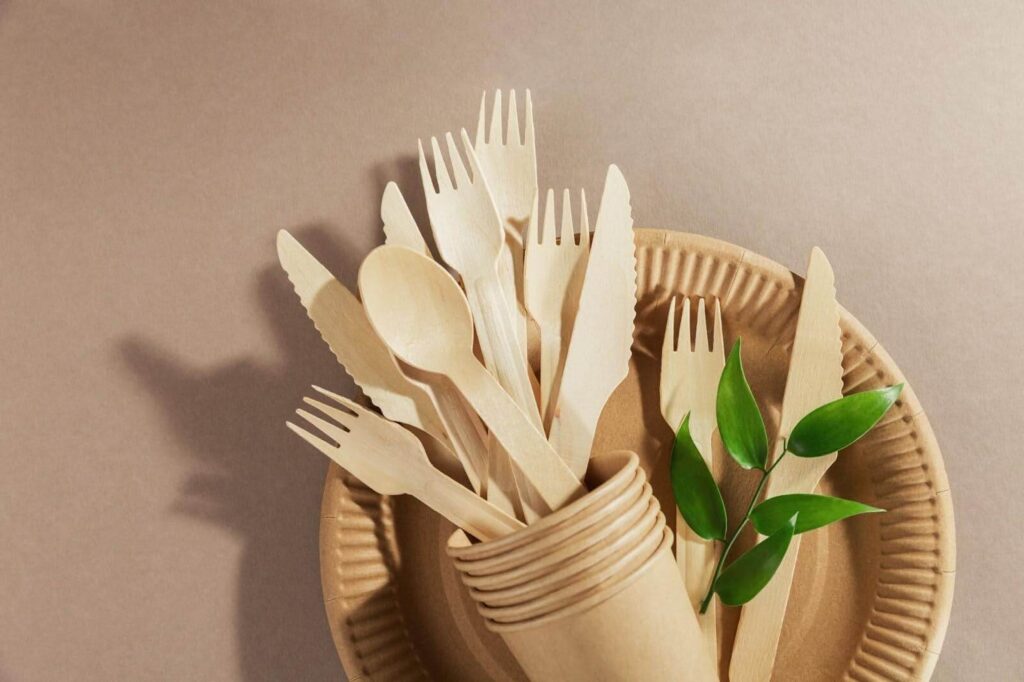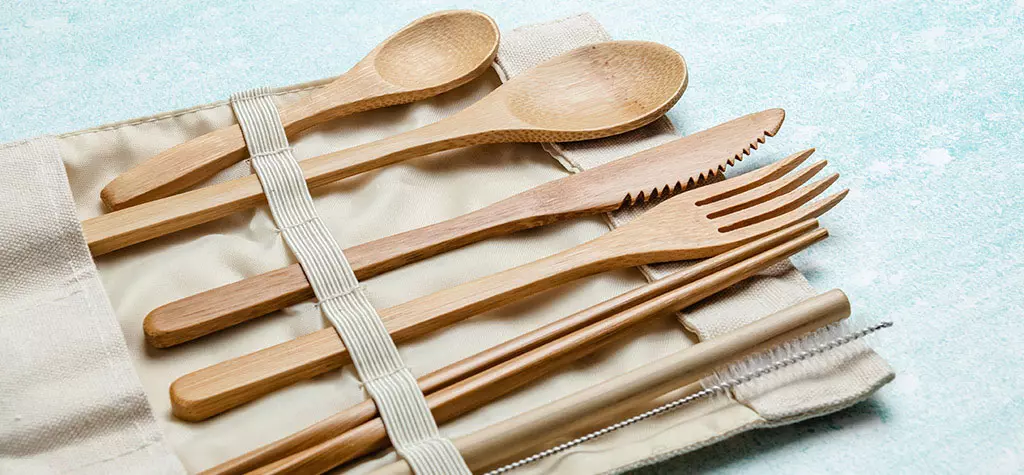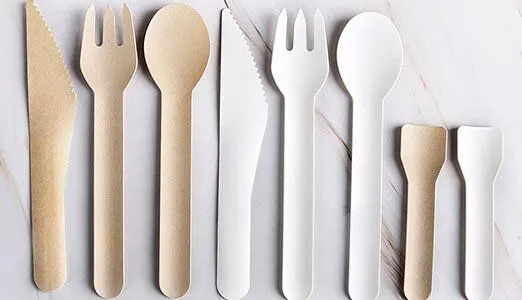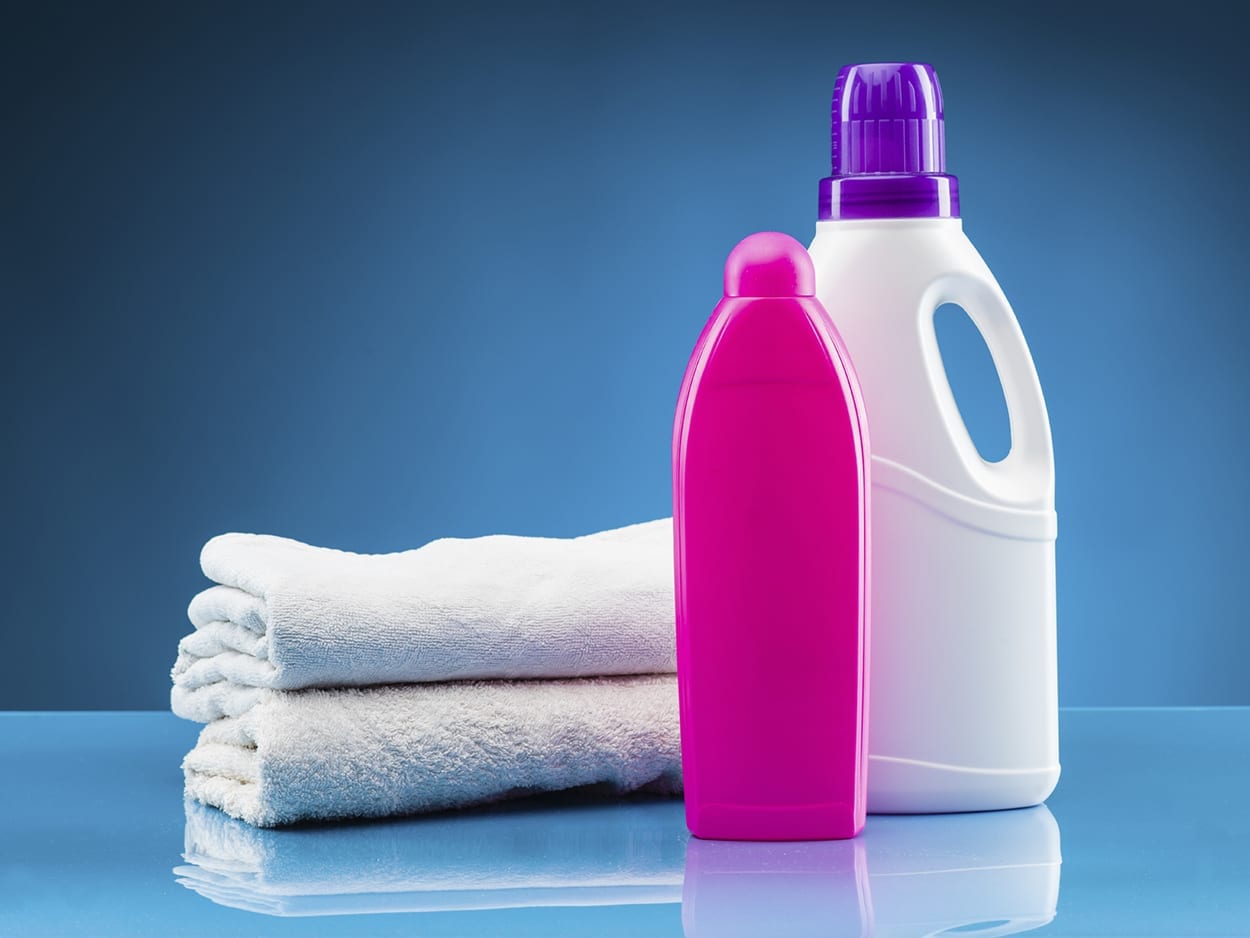
How To Choose The Right Floor Cleaners – A Buyer’s Guide
Choosing the right floor cleaner is essential for maintaining cleanliness, safety, and the longevity of your floors. With a vast...

Get 20€ off on your first order!
Selecting the right disposable spoons doesn’t have to be overwhelming. By considering material, durability, design, and sustainability, you can make a choice that aligns with your operational needs and values. Whether you need budget-friendly options or premium eco-friendly solutions, this guide equips you with the knowledge to make an informed decision.
Visit Droppe’s Disposable Spoons Category to explore top-rated products and choose the ideal solutions for your business needs. Consider materials, designs, and supplier reviews to make the most informed decision.
Disposable spoons come in different materials, each with its pros and cons. The most common types include:
Learn more about choosing the best disposable spoons for your needs.
The strength of the spoon should align with its intended use. For instance, lightweight spoons work well for desserts and sampling, while medium-strength spoons handle soups or sauces effectively. For dense foods like ice cream, heavy-duty options are a must. Testing spoon durability can help confirm their suitability for your needs.
The design can affect functionality and aesthetics. Spoons are available in different sizes:
A proper sizing chart can ensure you select the right option for your needs.
| Spoon Type | Typical Use | Approximate Length |
| Tasting Spoon | Food sampling | 10-12 cm |
| Standard Spoon | General dining | 15-18 cm |
| Heavy-duty Spoon | Thick foods (e.g., ice cream) | 18-20 cm |

Eco-consciousness is increasingly important in today’s food service industry. Switching to biodegradable spoons or those made from renewable materials provides an opportunity to appeal to environmentally conscious customers while aligning with sustainability goals.
According to studies, over 70% of European consumers prefer eco-friendly dining solutions, which can positively impact customer loyalty.
Look for certifications such as compostability standards (EN 13432) or FSC certification for wooden products.
For a broader perspective on eco-friendly options, explore Greenbox’s catalog.
Different industries have varied requirements for disposable spoons. Here’s how to tailor your selection:
Explore related food service supplies.
Partnering with reliable suppliers provides access to consistent quality and availability, ensuring operational efficiency. Some of the top European suppliers include:
These suppliers offer a wide range of disposable spoons tailored to various needs.
If you’re considering additional supplies for your food service operations, explore these categories:
For guidance on choosing related items, read How To Choose The Right Disposable Cutlery For Food Service.
We hope this guide has provided valuable insights into selecting the right disposable spoons for your food service needs, covering everything from material options to industry-specific applications. Whether you’re managing a bustling takeaway, catering elegant events, or ensuring convenience in casual dining, our goal is to help you make informed, confident choices.
Explore the full range of Disposable Spoons on Droppe, featuring trusted suppliers like Greenbox, Duni, and ADEBO, tailored to meet the unique demands of your business.
Still have questions or need expert advice on finding the perfect supplies? Don’t hesitate to reach out—our team is here to support you in delivering seamless service and enhancing customer satisfaction every step of the way.
– The Droppe Team
It depends on the material. Most plastic spoons can be recycled if cleaned, but biodegradable and compostable spoons require proper disposal in composting facilities.
Biodegradable spoons made from materials like bamboo or cornstarch are the most sustainable choices.
Match the spoon size to its purpose: small for tasting, standard for general use, and heavy-duty for dense foods like ice cream.
Yes, wooden spoons are safe for hot foods and often preferred for their durability and eco-friendliness.
Many suppliers offer customization options like logo printing, depending on the material and order quantity.
Thank you! You've signed up for our newsletter.



















Choosing the right floor cleaner is essential for maintaining cleanliness, safety, and the longevity of your floors. With a vast...

Not sure which disposable cutlery to choose for your food service? Whether you’re considering plastic, wooden, or compostable options, this...

Deciding between liquid fabric softeners and dryer sheets? This guide makes it easy. You’ll learn everything you need to choose...

Choosing the right floor cleaner is essential for maintaining cleanliness, safety, and the longevity of your floors. With a vast...

Not sure which disposable cutlery to choose for your food service? Whether you’re considering plastic, wooden, or compostable options, this...

Deciding between liquid fabric softeners and dryer sheets? This guide makes it easy. You’ll learn everything you need to choose...
Get 10€ off on your first order!
Save 30% by buying directly from brands, and get an extra 10€ off orders over €100
Save 30% by buying directly form brands, and get an extra 10€ off orders over €100